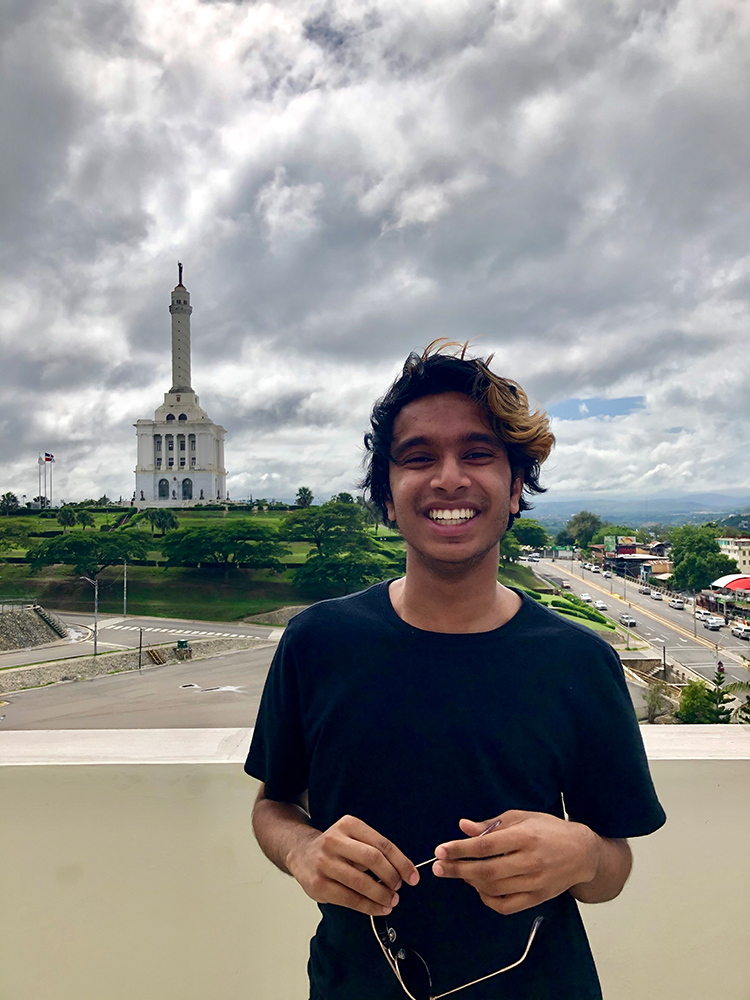
Adesh Labhasetwar is a senior international business major and studied abroad on the Higher Education in the Dominican Republic: Access, Equity, and Opportunity during winter break 2019.
There are no words to describe the rhythm of the beating drums that ceremoniously guide the farmers to create chocolate. The feeling of the sun reflecting off of the roof of the Mirabal Sisters' home cannot be captured in one sentence. The countless exchanges between faculty, students, natives, and workers in the Dominican Republic require an essay as rich and deep as the history of the country. Through my authentic and eye-opening experience in the Dominican Republic, I learned about how individuals in Santiago De Los Caballeros value their culture and the role their identity plays in the present-day. The Dominican Republic is a perfect example of how history and modernity blend together for several purposes, both beneficial and dangerous. While some Dominicans may enjoy freedom and prosperity in a post-dictatorial era, minorities such as the Haitian population suffer from statelessness and discrimination brought on from early colonialism and exacerbated by the regime of Rafael Trujillo.
Education is a prime example of the desperate need for national unity. Without just sitting in a classroom, I was able to understand how the Dominican government plays a role in shaping how students learn. The controversial “four-percent rule,” which was supposed to allocate 4% of the country's GDP to educational funding, was never put into practice. Furthermore, although education is compulsory and guaranteed in the Dominican Republic's constitution, this advanced concept is not always realized, especially with the marginalized Dominican-born Haitian population.
It was fantastic to see how culture and history are still present in the Dominican Republic, such as through the emphasis of agricultural studies in technical schools and higher education as well as the painted butterflies on every street corner that are reminiscent of the efforts of the Hermanas Mirabal. However, it is essential to understand the drawbacks of how history and culture can cultivate xenophobia. The painful discrimination against Haitians, regardless of where they are born, has impacted their livelihoods and ability to progress socially, mainly by acting as a barrier to claiming their nationality and subsequent access to education. In order for the Dominican Republic to advance through education, the nation must invest in overcoming this hostility to achieve unity, liberty, and prosperity for everyone on the island.
Beyond learning about the education systems in the Dominican Republic, I was extremely thankful for the opportunity to immerse myself in another culture and practice speaking Spanish. Worldly experiences such as these should not be exclusive to just college students or families that can afford to travel. Seeing the parallels between my Indian roots and this Latin culture was breathtaking and inspirational, from the similar cooking ingredients to the art and clothing that is worn in festivals. Language was never a barrier but rather an opportunity to expand my Spanish prowess and learn idioms to truly sound like a native. Regardless of where a student may study abroad, they will be proud to know that they could have a second home.